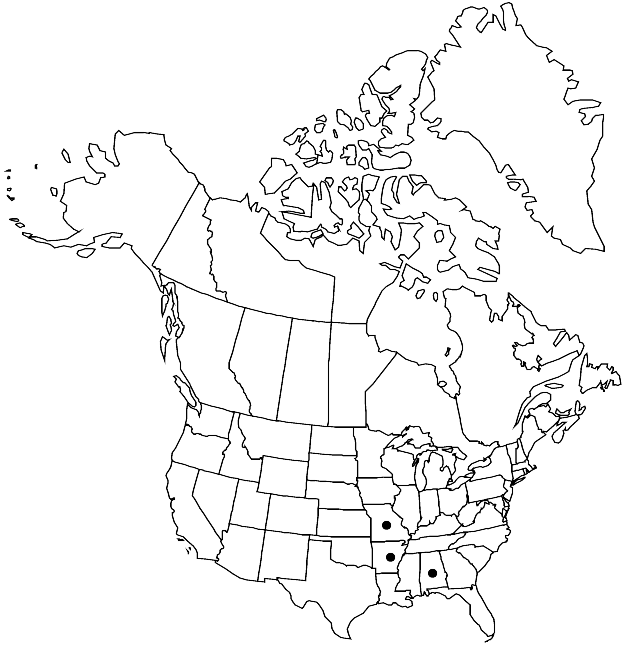Difference between revisions of "Physaria filiformis"
Novon 12: 323. 2002.
FNA>Volume Importer |
imported>Volume Importer |
||
| (6 intermediate revisions by 2 users not shown) | |||
| Line 8: | Line 8: | ||
}} | }} | ||
|common_names=Limestone glade or Missouri bladderpod | |common_names=Limestone glade or Missouri bladderpod | ||
| − | |basionyms={{Treatment/ID/ | + | |basionyms={{Treatment/ID/Basionym |
|name=Lesquerella filiformis | |name=Lesquerella filiformis | ||
|authority=Rollins | |authority=Rollins | ||
| + | |rank=species | ||
| + | |publication_title=Rhodora | ||
| + | |publication_place=58: 201. 1956 | ||
}} | }} | ||
|synonyms= | |synonyms= | ||
| Line 36: | Line 39: | ||
-->{{#Taxon: | -->{{#Taxon: | ||
name=Physaria filiformis | name=Physaria filiformis | ||
| − | |||
|authority=(Rollins) O’Kane & Al-Shehbaz | |authority=(Rollins) O’Kane & Al-Shehbaz | ||
|rank=species | |rank=species | ||
| Line 51: | Line 53: | ||
|publication year=2002 | |publication year=2002 | ||
|special status= | |special status= | ||
| − | |source xml=https:// | + | |source xml=https://bitbucket.org/aafc-mbb/fna-data-curation/src/2e0870ddd59836b60bcf96646a41e87ea5a5943a/coarse_grained_fna_xml/V7/V7_1051.xml |
|tribe=Brassicaceae tribe Physarieae | |tribe=Brassicaceae tribe Physarieae | ||
|genus=Physaria | |genus=Physaria | ||
Latest revision as of 22:29, 5 November 2020
Annuals; with a fine taproot; densely pubescent, trichomes (sessile), usually 4-rayed, rays forked, rarely simple or tripartite, (finely tuberculate). Stems several from base, (slender), erect or outer decumbent, (usually branched, branches filiform, bud clusters of growing plants drooping), to 2.5 dm. Basal leaves: blade orbicular to broadly spatulate, 1–2.4 cm, margins entire or sinuate. Cauline leaves: (proximal often petiolate, distal sessile); similar to basal, blade spatulate to oblanceolate or (distal) linear, (base cuneate), margins entire or sinuate. Racemes loose. Fruiting pedicels (usually divaricate-ascending, straight or slightly curved), 7–11 mm. Flowers: sepals oblong or elliptic, 2.5–4.6 mm, (median pair slightly thickened apically); petals (pale yellow), spatulate to obovate, 5–9 mm, (apex ± emarginate). Fruits (sessile or shortly stipitate), globose, not inflated, 3–4 mm; valves (not retaining seeds after dehiscence), glabrous throughout; replum as wide as or wider than fruit; ovules 4 per ovary; style 3–5 mm. Seeds flattened. 2n = 14.
Phenology: Flowering Apr–May.
Habitat: Limestone, dolomite, and shale, sparsely vegetated or barren areas, cedar glades, old pastures, along roadsides
Elevation: 200-300 m
Distribution

Ala., Ark., Mo.
Discussion
Of conservation concern.
Selected References
None.